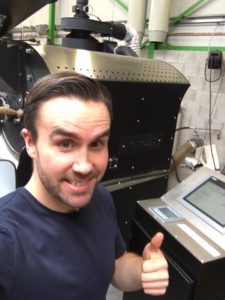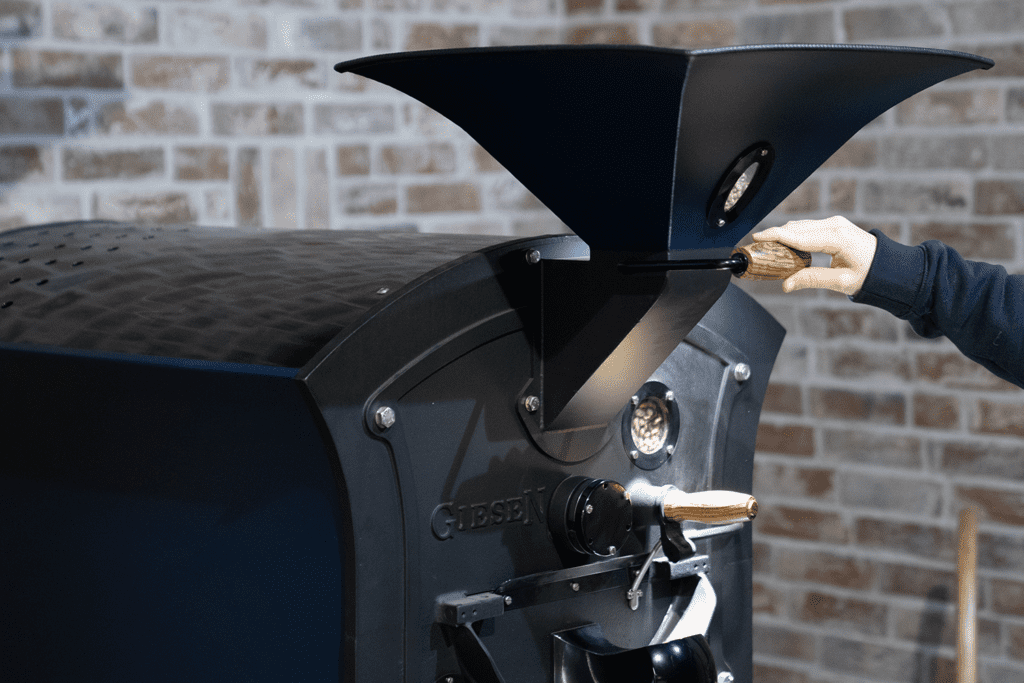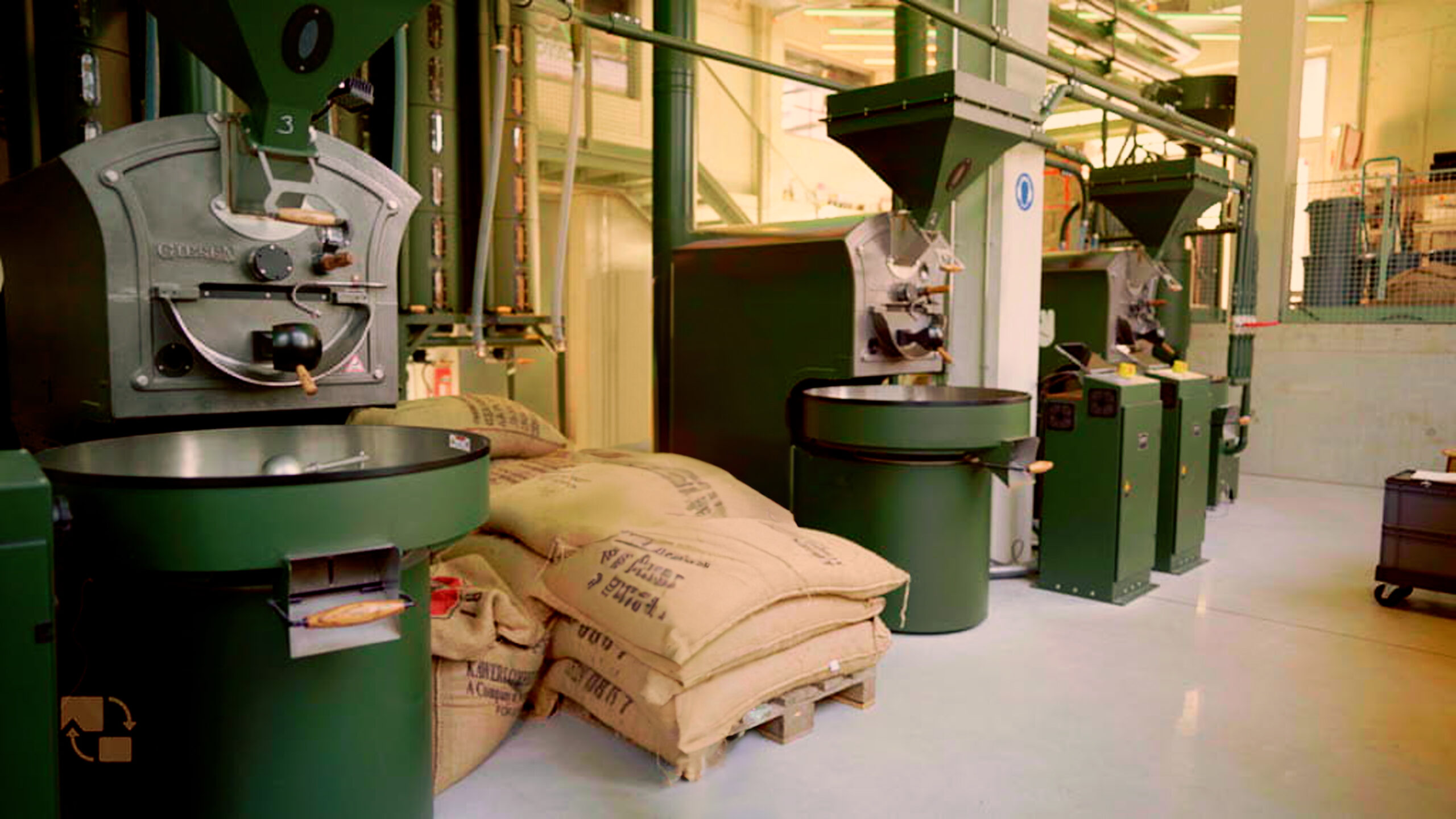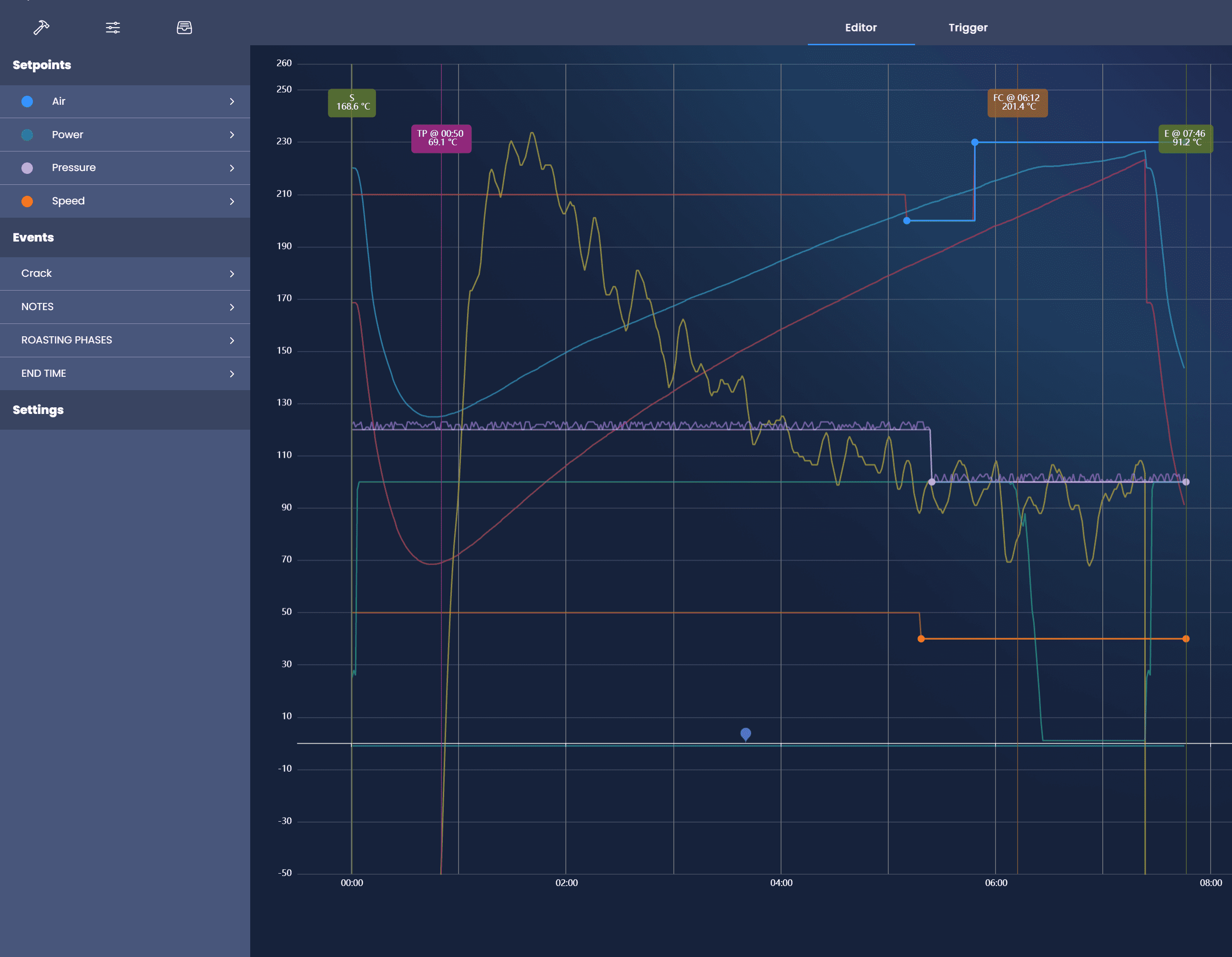I know what coffee is going to taste like before I taste it.
Sam Corra from Ona Coffee Australia visited the Giesen Coffee Roasters factory September 6th 2017. Ona coffee is located in Fyshwick Australia. They roast approximately 4.8 tons of coffee per week and have 3 of their own cafés and a fourth one is opening soon.

Sam’s visit to the Nederlands was the first time. I talked to Sam after his tour around the factory, Sam said: “It was really impressive to see them all next to each other”.
Ona roasts a lot of coffee, do you ever get any time off?
We try to have a 5 day roast week with 12 roasting hours per day, but sometimes when it is necessary, for example when something doesn’t work, we roast 20 hours a day.
The quality of our coffee is so important to us that we don’t work with an 8 hour workday. We all have contracts that say we will stay until the work is done.
We don’t watch the time, we watch the quality. So we work between 45 and 60 hours a week.
Do you have time for a personal life?
Yes I do! My partner works at one of our cafés as a manager so we have contact there and I try to spend some time at home. We work with a lot of friends, so in the evenings we will eat together and drink wine, so that is really nice.
What are you doing here today?
“I’m here to test the W30A. The most important thing is to be able to control as much of the process as possible and to monitor it. I will use a coffee bean that is of similar quality as the beans we have in our roastery. The data in Cropster, and the way the bean looks afterwards tells me if the roasting went as I want it to go.”

Do you have to taste before you can decide if the bean is roasted in a good way?
I know what coffee is going to taste like before I taste it.
Haha, that must be convenient!
When you work as much with coffee as I do and have as much experience, not only as a roaster but also as a barista you know what should happen during the roasting process to make the coffee bean taste a certain way.
So are you satisfied with Cropster and the way it works?
Cropster is a great program because it gives you the ability to control a lot of variables. I went to China to do a course and Cropster is one of the two most advisable programs to control your roaster.
Why did you / ONA coffee choose a Giesen coffee roaster?
We started out with a Has Granti, and then tried several coffee roasters, like Diedrich and Probat whom is still producing the machines they did decades ago. The Giesen has more controllability as the other big names have and we like the way Giesen machines are built.
The way Giesen is always progressing and ongoing in their improvements for existing machines and in building on new ones. It’s an ongoing process to learn and make things better, that is also what we do with our coffee. We work on it. That’s what makes a Giesen special.
Did you ever need support from Giesen on your machines?
Yes we’ve had our W15A for approximately 7 or 8 years now, so there were some issues over the years. The W15A was produced almost a decade ago and needed some updates. Giesen fixed that quite fast despite the time difference.
The day before I flew to the Netherlands our W45A had some motor problems, so I’m flying home tomorrow with a new motor. It was really frustrating that it wasn’t working so I’m happy we will have it up and running real soon.
Why is sustainability and fair trade so important to Ona coffee?
Quality. When a coffee bean is grown, it is important that the bean has an optimal environment. For example; in the past we bought coffee beans from Honduras and at first the quality was great. As the farming company grew, they started working with pesticides and fertilizers and the quality dropped significantly because the soil decreased in quality. We have to teach people that more crops aren’t always better or more profitable. We make sure the quality is good and we reward the local farmers for that. So they learn they profit more from sustainable growth, which is better for the coffee bean, the environment and the farmer.
How do you apply sustainability in your roastery and cafés?
We minimize waste and the use of goods. We use porcelain where we can, and we rather use metal teaspoons than plastic ones. The takeaway cups are as biodegradable and recyclable as possible and we don’t use separate sugar sticks. We reuse our bean bags and try to minimize the use packing material.
How do you personally prefer your bean roasted?
I’m a sucker for filter coffee. I think it is more enjoyable than any other coffee.
How do you drink your coffee?
Black! I like an espresso a long black and of course filter coffee.



